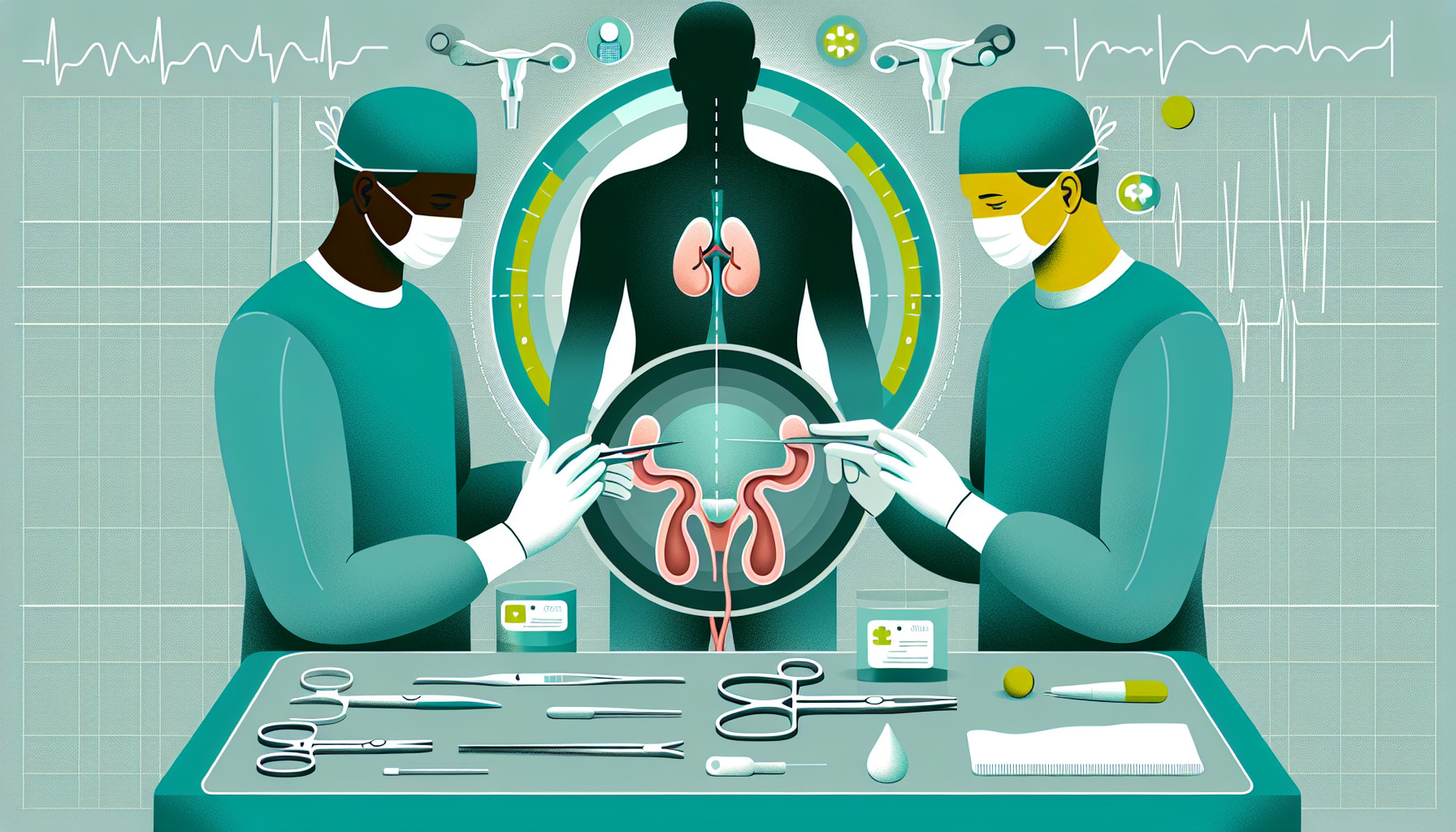Our Summary
This research paper discusses the rise in popularity of robotic-assisted surgery for bladder cancer (radical cystectomy) over the past decade. Initially, these surgeries were performed with an external urinary diversion due to the technical difficulty of an internal approach. However, new techniques have been developed to make it easier to operate on the bowel, check the blood vessels in the ureter and mesentery (the tissue that attaches the intestines to the abdominal wall), and connect the ureter and ileum (part of the small intestine) to the urethra.
Mastering these techniques for internal urinary diversion can lead to less blood loss during surgery, quicker operations, and faster recovery times, especially when combined with enhanced recovery protocols. The paper reviews these technical aspects, potential complications, outcomes, and future developments in internal urinary diversion. In simpler terms, the paper explores advancements in a specific type of bladder cancer surgery and how these improvements can benefit patients.
FAQs
- What is robotic-assisted radical cystectomy and why has it gained popularity over the past decade?
- What are some of the technical points, complications, and outcomes of intracorporeal urinary diversion?
- How has the introduction of innovative techniques improved the process of intracorporeal urinary diversion in minimally invasive surgery?
Doctor’s Tip
One helpful tip a doctor might tell a patient about cystectomy is to discuss the possibility of robotic-assisted radical cystectomy with intracorporeal urinary diversion. This approach has shown benefits such as decreased blood loss, shorter operative times, and faster recovery compared to traditional methods. It’s important to discuss all options with your healthcare provider to determine the best course of treatment for your individual case.
Suitable For
Patients who are typically recommended for cystectomy are those with invasive bladder cancer that has not responded to other treatments such as chemotherapy or radiation therapy. Additionally, patients with recurrent or high-grade non-invasive bladder cancer may also be recommended for cystectomy. Other conditions that may warrant cystectomy include muscle-invasive bladder cancer, neurogenic bladder dysfunction, and refractory interstitial cystitis.
Timeline
Before cystectomy:
- Diagnosis of bladder cancer: A patient may experience symptoms such as blood in the urine, frequent urination, or pelvic pain, leading to a diagnosis of bladder cancer.
- Treatment planning: The patient and their medical team will discuss treatment options, including cystectomy (surgical removal of the bladder) as a potential treatment.
- Preoperative preparation: The patient will undergo preoperative tests, consultations, and preparations to ensure they are ready for surgery.
After cystectomy:
- Surgical procedure: The patient undergoes robotic-assisted radical cystectomy, during which the bladder is removed along with surrounding tissue.
- Recovery in the hospital: The patient will stay in the hospital for monitoring and recovery, typically for several days to a week.
- Urinary diversion: Following cystectomy, the patient may undergo intracorporeal urinary diversion, where a new way for urine to leave the body is created using the intestines.
- Postoperative care: The patient will receive postoperative care, including pain management, monitoring for complications, and rehabilitation to regain strength and function.
- Follow-up appointments: The patient will have follow-up appointments with their medical team to monitor their recovery, manage any complications, and discuss long-term care and surveillance for bladder cancer recurrence.
What to Ask Your Doctor
What are the risks and benefits of undergoing a cystectomy?
What type of cystectomy procedure will be performed (open, laparoscopic, robotic-assisted)?
What is the recovery time and expected outcome of the surgery?
Will I need a urinary diversion after the cystectomy? If so, what are the different types of urinary diversions and their pros and cons?
What are the potential complications associated with a cystectomy and how are they managed?
How frequently will follow-up appointments be needed after the surgery?
What lifestyle changes or modifications will be necessary after the cystectomy?
Are there any alternative treatments or procedures that can be considered instead of a cystectomy?
How experienced is the surgical team in performing cystectomies, specifically the type of procedure recommended for you?
Are there any clinical trials or new technologies available that may be beneficial for your specific case?
Reference
Authors: Murthy PB, Campbell RA, Lee BH. Journal: Urol Clin North Am. 2021 Feb;48(1):51-70. doi: 10.1016/j.ucl.2020.09.005. Epub 2020 Nov 5. PMID: 33218594
